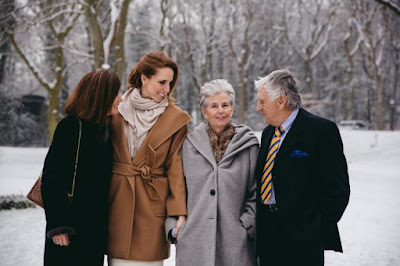If you want to prevent falls in your loved one then be
proactive about getting an assessment. A medical visit after a fall is to
address any injuries that your loved one may have suffered. Make sure the
doctor check all the things to help your loved one prevent future falls. An
evaluation may be the right thing for your loved one even if he or she have
tripped and stumbled. Here are the eight things to make sure the doctors check
on after your loved one falls.
1. Signs of Illness.
An illness may cause your loved one to fall while walking. The doctor may check any signs of illness if a senior falls. Make sure to bring up any symptoms you’ve noticed in your loved one's body and let the doctor know. A health problem may make your loved one weak which can bring on a fall. The health problems may include urinary tract infection, dehydration, anemia, pneumonia, or heart problems.
2. Low Blood Pressure
Low blood pressure may cause dizziness in seniors. It may cause falling or your loved one to trip down while walking. If your loved one takes medication then he or she may be experiencing low blood pressure. Check with the doctor to make sure seniors are not feeling dizzy while standing. Your loved one can consume healthy nutrients to keep a normal blood pressure level.
3. Blood tests
It is a good idea to check your loved one's blood tests after a fall. The low blood count may worsen falls in seniors. Test your loved one blood count, electrolytes, and kidney functions by taking him or her to a hospital. You may ask the doctor to explain any abnormalities found in the report which may relate to falling. If your loved one has diabetes then take his or her blood sugar log with you to the doctor. Low blood sugar can be an important risk factor for falls in your loved one.
4. Medications
Many seniors consume medications that may increase their fall risk. Consult the doctor before reducing or eliminating the medications which may cause falling. There are some medications which may cause falling or dizziness. It includes sedatives, diabetes medications, blood pressure medications, or tranquilizers.
5. Gait & Balance Assessment
In a gait assessment, the doctor observes the way your loved one walks. There are also some simple ways to check the balance. It includes addressing pain or physical therapy. Your loved one may have pain on his or her feet which may cause falling. Physical therapy exercises may help seniors to walk in an easy manner.
6. Low Amount of Vitamin D
If your loved one has low vitamin D levels then it may weaken his or her bones. Seniors who remain indoors or aren't active may have a low vitamin D level. Your loved one may take a daily supplement of vitamin D or talk to the doctor about getting him or her checked. The doctors may treat seniors who have low vitamin D levels. Seniors can eat citrus fruits which contain a high amount of vitamin D in it.
Author Bio:
Carolina Orosa is fun loving and loves to blog. She is a story teller, a foodie and looks forward to anything adventurous. She is a seasoned writer with experience in writing on any topic that catches her fancy. He is currently working for Home Care Assistance Vancouver.

No comments:
Post a Comment